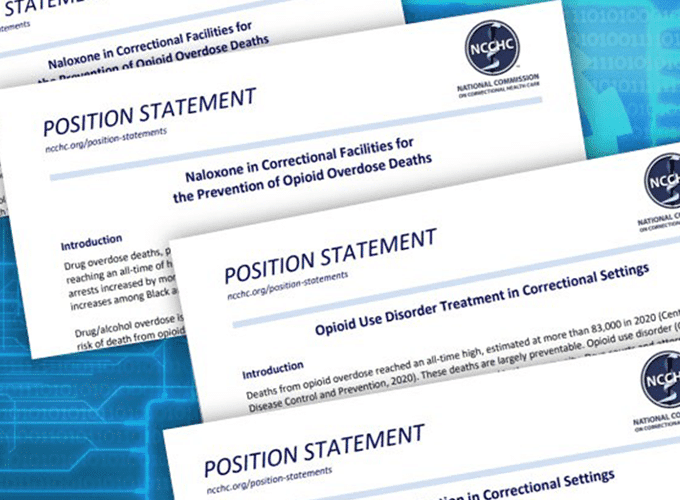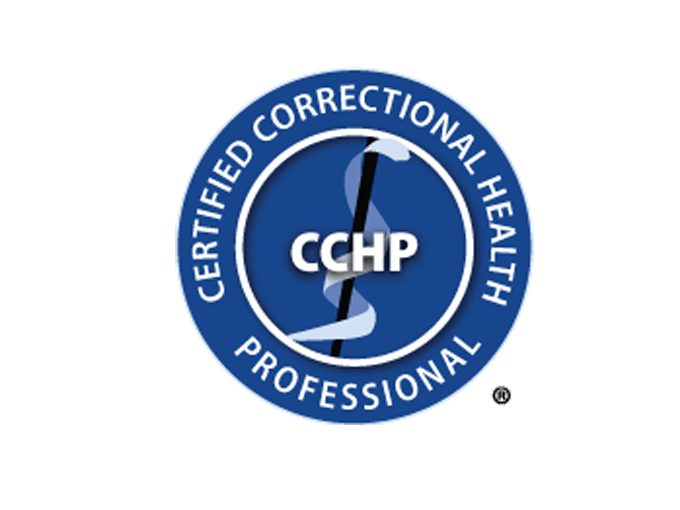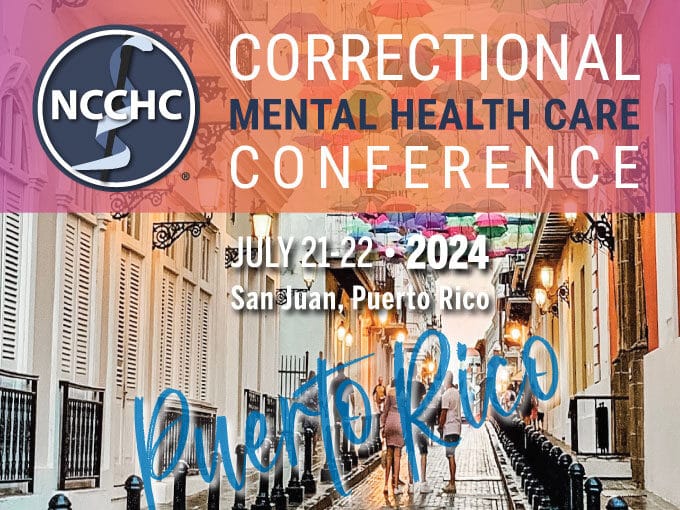
Standards Q&A: 75% Custody Health Training Requirement
Does the 75% requirement refer to all custody staff or only those working during
Home Why Adolescents Should Not Be in Adult Carceral Facilities and How to Protect Them When They Are
 Feb 20, 2024
Feb 20, 2024NCCHC’s newly revised position statement, “Health Services to Adolescents in Adult Correctional Facilities,” reflects updated science underscoring adolescents’ unique needs, developmental vulnerabilities, and higher potential for positive change compared to adults. The revised statement reaffirms the stance that adolescents should not be incarcerated in adult facilities because adult facilities are unlikely to be able to “provide care to adolescents in a developmentally appropriate and competent manner.”
The latest evidence, published by Silver et al (2023) in JAMA Network Open, suggests that incarcerating adolescents in adult prisons as opposed to juvenile facilities is linked to early death. The NCCHC statement cites several risks to adolescents in adult facilities, including the heightened risk of trauma and violence. The statement quotes the 2009 National Prison Rape Elimination Commission, stating that, “Juveniles in confinement are much more likely than incarcerated adults to be sexually abused, and they are particularly at risk when confined with adults.” Multiple mechanisms likely contribute to the heightened risk facing adolescents held in adult facilities, and the statement illuminates some important concerns.
The position statement also recognizes that despite the stance that adolescents should not be in adult carceral facilities, at least in the near future this phenomenon is likely to continue to occur. In fact, as recognized in the statement, every state has a pathway for incarcerating adolescents with adults.
Given that children and adolescents less than 18 are likely to be incarcerated with adults, at least in the near term, the statement outlines priority actions to protect the health of adolescents in adult facilities. Priorities include ensuring sight and sound separation from adults, access to adolescent health specialists, staff training and attunement to the unique health needs of adolescents, and availability of developmentally appropriate programming, including with regards to mental health, physical health, social needs, and life skills training to support successful transition to adulthood. In addition, facilities should ensure appropriate consent and assent processes are developed and implemented and should involve parents and caregivers as per national professional society health care standards.
The position statement, which previously focused on youth less than 18, also now considers and addresses the specific health development needs of young adults, defined as young people ages 18 to 25. Currently, a “one-size-fits-all” approach is frequently used in adult carceral facilities, meaning that an 18-year-old and a 23-year-old receive the same programming as 45-year-olds. Such an approach does not align with developmental science, since we now know that brain development, especially with regards to impulse control and future planning, does not complete until approximately age 25. The developmental health and social needs should be considered in care delivery and planning within carceral facilities as an important pathway for supporting successful transitions for young people to adulthood and out of jail. Facilities are encouraged to consider such aspects in the provision of programming and care.
For the United States carceral system to be rights-aligned, meaning in compliance with international human rights standards, no youth less than 18 would be incarcerated with adults. Until that occurs, the revised NCCHC position statement offers crucial guidance for facilities and policymakers to consider regarding the care of adolescents in the carceral system.
View all of NCCHC’s position statements.
By Elizabeth Barnert, MD, MPH, chair, NCCHC Juvenile Health Committee


